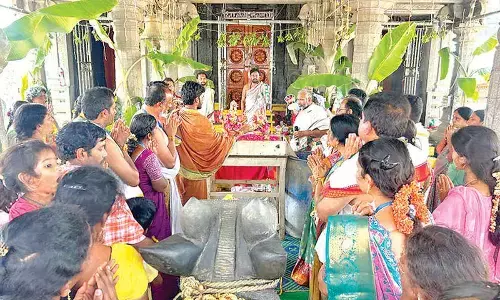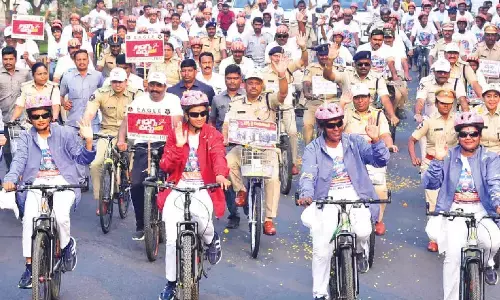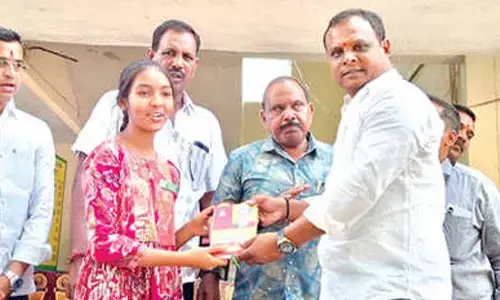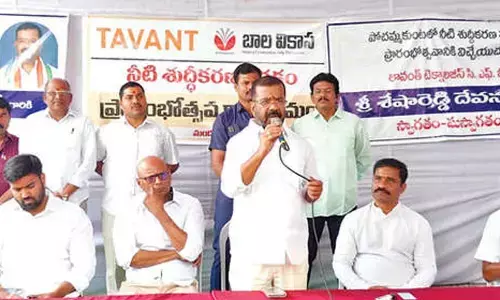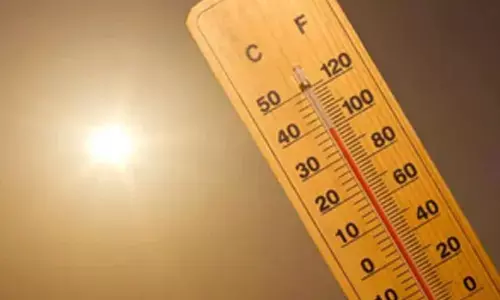Let Hindi rule the roost in SC; other languages in HCs
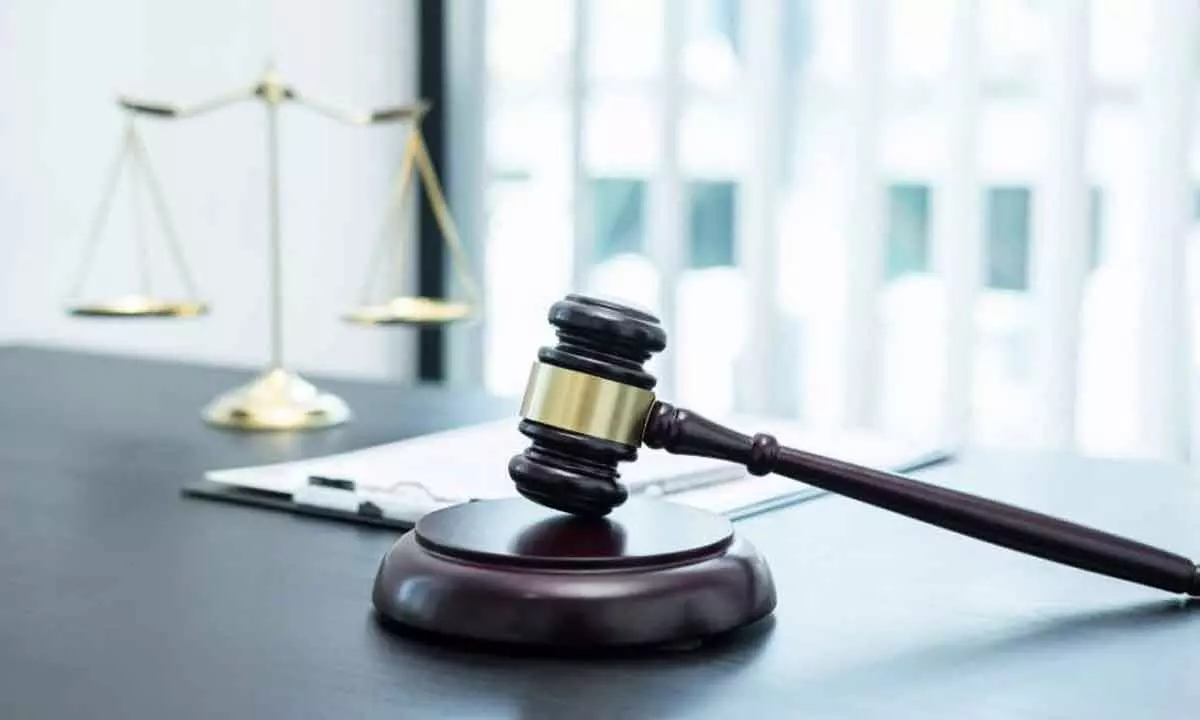
On November 18, while hearing a matter in which concerned party himself was arguing in person in Hindi, a division bench of Justice K M Joseph and Justice Hrishikesh Roy observed that they don't understand Hindi.
On November 18, while hearing a matter in which concerned party himself was arguing in person in Hindi, a division bench of Justice K M Joseph and Justice Hrishikesh Roy observed that they don't understand Hindi.
A special leave petition (SLP) titled, Shankarlal Sharma Vs Rajesh Koolwal & others was being heard by the bench and the petitioner himself was arguing his case in Hindi. As both the petitioner and the bench could not understand each other due to the language barrier, another lawyer who was waiting for his case volunteered to explain the views of the bench in Hindi to the petitioner. Later, the additional Solicitor General Madhavi Divan, who too was present in court also rendered help to the party and subsequently informed the court that the petitioner would like to have a lawyer. Thereupon the bench appointed the lawyer who had earlier gone to the rescue of the petitioner as pro-bono lawyer for him and posted the matter to December 4.
Indeed, this is a sorry state of affairs that the majority of subjects who don't understand English are treated just like pawns by the rulers. By keeping the hegemony of English intact they have permanently kept away the gullible non-English knowing people from having the access to the administration and justice far away. The system of dominance of English in higher courts and even in subordinate courts in some States breeds nepotism, corruption and a legacy of the English-speaking privileged class. It is presumed, unfortunately though, that only English-speaking lawyers are meritorious, knowledgeable, methodical and a cut above the others.
But the picture is all-together different. Most of the half-baked 'English' knowing clan is good for nothing. It is equally true that most of the laws which are having the trash value in view of the fact that they have been literally copied from the English Jurisprudence are not appropriate for the people of this great country which has a glorious history and enviable culture. Today, India has been acclaimed as the 'Vishwaguru' and rest of the world including the developed nations look at us for guidance in the matters of science, diplomacy and international peace. It is strange that when the countries like Russia and China can do very well without the use of English almost in all walks of life including judiciary, what prevents India to fall on lines with these countries.
The answer to this simple question is not that difficult. In one word the answer is 'vested' interests. Everybody involved in justice delivery system has an axe to grind. The lawyers, known as advocates literally mint money from the gullible non-English knowing clients spread over the length and breadth of the country. The dichotomy is that even if such clients want to know as to what transpires in the court, they will be at sea because of the language barrier. In fact, the half – prepared lawyers are nothing but only the agents of the clients and may jeopardise the clients' interests by misrepresenting the facts of the case in the court while the 'poor' client would be looking like the Alice in the wonder land ! There cannot be a bigger joke than this.
Frankly speaking if there is a will, there is a way. If a government of the day holding the reigns at the Centre has guts, it can change such a situation overnight. Article 348 (1) of the Constitution of India paves the way for introduction of any additional and alternative Indian language as the court language of any High Court and the Supreme Court of India. For this, the parliament has to enact a law and nothing more. As and when this happens, no non-English knowing litigant will have to feel 'sorry' for the language barrier.
LETTER AGAINST FORMER CJI N V RAMANA: AP CM JAGAN IN DOCK
One Sunil Kumar Singh who had filed a writ petition against the then sitting judge of the Supreme Court Justice N V Ramana who subsequently became the 48th CJI was briefly heard by the apex court's bench comprising Justice M.R Shah and Justice M M Sundresh on November 18.
The petitioner in his one page Writ Petition stated that it was improper of the sitting Chief Minister of a state to make unsubstantiated allegations against a sitting Judge of a the apex court and added that releasing the letter addressed to the then CJI SA Bobde to media has caused injury to the public. Singh added that what is at stake is the confidence, which the court in a democratic society must inspire among the public.
The bench directed the Registry to list the WP separately on December 12 for further hearing.
TARGETS FOR BAIL AND TRANSFER PETITIONS FIXED FOR SC
A full court decision has been taken by the apex court that each bench will hear ten bail applications and ten transfer of matrimonial petitions every day. At present, there are 13 benches in the Supreme Court. That means the SC will dispose of 130 cases per day and 650 per week. At this rate, all the transfer petitions pending before the apex court will be disposed of before the court closes for winter vacation.
NO CBI PROBE INTO JAYLALITHAA'S DEATH: MADRAS HC
Asking the petitioner R.R Gopaljee first to make representation before the Central and State governments seeking CBI inquiry into the mystery surrounding the death of former CM of Tamil Nadu J Jaylalithaa, the Madras High Court dismissed the petition praying for a CBI Inquiry on November 17.
The petitioner in his plea said that the Commissioner of Inquiry headed by the former High Court Judge, Justice Arumuga Sami had noticed several discrepancies surrounding to the death of Jaylalithaa.
TELANGANA-GUJARAT ADVOCATES PROTEST
Following the recommendation of Supreme Court Collegium for the transfer of three High Court Judges, including the acting Chief Justice of Madras HC T. Raja, Gujarat HC's Justice Nikhil S. Kariel and Telangana HC Justice A. Abhishek Reddy, there has been widespread uproar among the legal fraternity. In fact, the high court advocates of Gujarat and Telangana HCs have struck the work in their respective States.
Meanwhile, in a subsequent development the CJI DY Chandrachud has agreed to meet the agitating lawyers of both States.
In a related development the apex court on November 17 agreed to hear a PIL challenging the Constitutional validity of the Judge-selecting- Judge collegium system which is a mechanism created by the Supreme Court through two Constitution Bench Judgments in 1993 and 1998 thereby taking away a Constitutionally conferred power on the executive.


